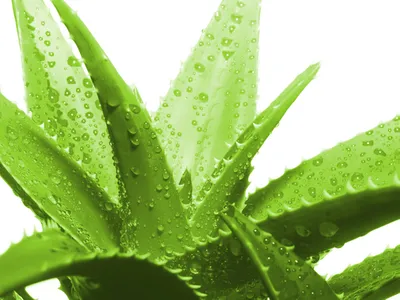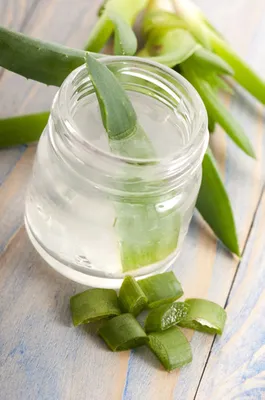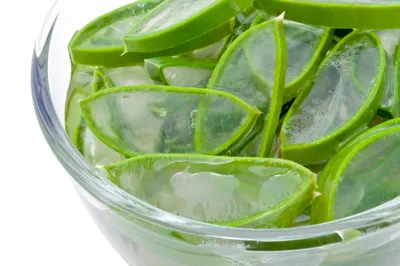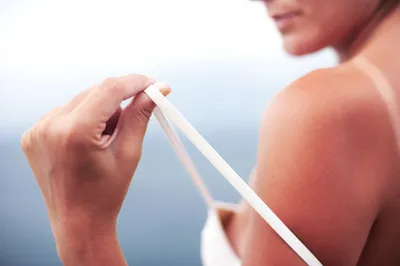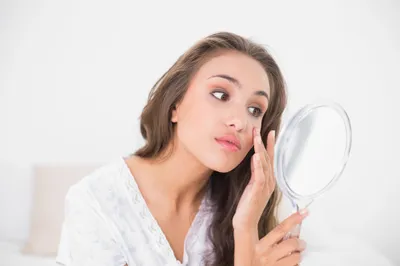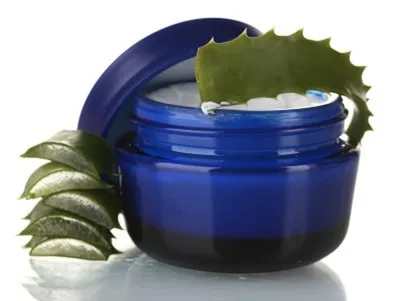It’s come to my attention that a so-called “miracle beverage” has been linked to everything from glowing skin to stronger immunity. That’s right, I’m talking about aloe water, and I want to set the record straight on the merits and safety precautions of aloe water, or aloe juice, before you pass a stocked shelf at the grocery store…
1. Aloe Vera History
Aloe vera water is made from the green outer leaf of the aloe vera plant, and although you may have just recently discovered it at your health food store, aloe vera has some serious history.
Aloe Vera, in plant form, dates back nearly 5,000 years to the early Egyptians who used the gel of the plant both orally and topically to treat burns, wounds, and other skin conditions.
2. Aloe Water Uses
While Aloe vera has long been used as a topical cream, or gel, to treat topical burns and abrasions, it’s now sold as a beverage at most local health food stores. If you perform a simple Google search for “the benefits of Aloe vera water,” you’ll find all sorts of claims.
Aloe water is touted for its ability to improve digestion, lower cholesterol, strengthen immunity, promote younger looking skin, and even trigger weight loss. Keep in mind that sufficient scientific evidence doesn’t exist to support most of these claims.
3. Aloe Water vs. Aloe Juice
To clear up any confusion, aloe water is a slightly tart beverage derived from the aloe plant. It’s not the same as the soothing gel and savior to sunburns and psoriasis.
Aloe water is an organic, filtered version of aloe juice, which means it’s minus any added sugar or artificial flavors. Although drinking from the aloe plant might not sound very appetizing, let’s look at a few reasons why celebrities, like Goop founder, Gwyneth Paltrow, swears by this elixir.
4. Aloe Water’s Skin-Boosting Benefits
An important thing to note here is that no beverage, just like no magic pill or food, can single-handedly transform the look of your skin. However, science tells us that the aloe vera plant is packed with essential vitamins.
Just to give you an idea, aloe contains, most notably, vitamin E, vitamin B, and vitamin C—which all support the immune system. So it’s very possible that those benefits could be mirrored on the skin’s surface.
5. Reverse Signs of Aging
According to Dr. Mary Lupo, a clinical professor of dermatology at Tulane University School of Medicine, in New Orleans, Louisiana, foods and beverages rich in certain skin-protecting nutrients, like vitamin E and vitamin C, can help prevent and reverse signs of skin aging.
It makes perfect sense that a well-balanced diet filled with foods high in healthy vitamins and nutrients, like aloe water, can support skin’s appearance and ward off crow’s feet and sun damage.
6. Free Radical Protection
Anti-inflammatory- and antioxidant-rich foods, like aloe water, have long been credited with the ability to heal the body from the inside—out! And in fact, a large body of research supports this claim.
For instance, studies from New York University’s Langone Medical Center tell us that aloe vera is rich in several antioxidants, which have been linked to warding off the skin-damaging effects of free radicals (i.e., smog and sun). And in theory, any natural substance that improves your inner health can also improve your external appearance as well.
7. Aloe Water Warnings
While many patients take aloe vera water regularly, and without harm, research has tied the long-term ingestion of aloe to several health issues. According to a study on lab rates conducted by the National Toxicology Program (NTP) and published by the National Institutes of Health (NIH) ingesting aloe created carcinogenic activity in intestinal cells.
Ingesting aloe over the long term has also been linked to a vital loss of potassium, which is needed for muscle and function. Medical professionals also warn that aloe water can contradict with medications taken to treat diabetes and digestive and blood disorders.

